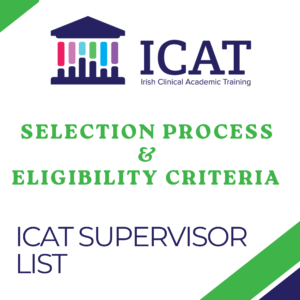Supervisor Database Search
Guidance for ICAT Supervisors
Supervisor Database
Full NameProfessor Andrew Neil Davies
Academic Department of Palliative Medicine (ADPM)
University College Dublin
Webpage:people.ucd.ie
Email hidden; Javascript is required.

- cancer/oncology
- clinical trials
- Other
Palliative care, supportive care, end of life care, cancer survivorship
- Medicine
- General Practice
- Clinical Trials
- Community Medicine
- Geriatric Medicine
- Haematology
- Hospice and palliative medicine
- Oncology
- Pharmacology
The ADPM is a collaboration between University College Dublin, Trinity College Dublin, and Our Lady's Hospice and Care Services.
The ADPM's research interests encompass supportive care (in cancer), palliative care, and end-of-life care. Current research projects involve cancer-related pain (breakthrough pain), opioid analgesics (opioid-induced constipation), cancer-related non-pain symptoms/problems (especially oral problems), rest-activity circadian rhythm disorders, sleep disturbance, remote patient monitoring (PROMS and vital signs), prognostication, cancer survivorship, deprescribing (gabapentinoids), and clinically-assisted hydration.
Most of our research projects are developed in-house, but we also undertake pharmaceutical studies (Phase I-IV), and international collaborative studies (i.e. Horizon Europe funded studies).
The ADPM has identified a number of potential PhD projects relating to its current research projects (see above), but is also open to new research strands suggested by doctoral candidates as long as they encompass supportive care, palliative care, or end-of-life care. In particular, the ADPM want to further develop its interest in: a) digital health interventions, and especially remote patient monitoring; b) multimodal interventions to manage circadian rhythm disorders (and related symptom clusters); c) assessment / management of end-of-life care problems ("terminal agitation", "death rattle"); and d) development of sustainable evidence-based models of specialist palliative care (for different populations).
N/A

